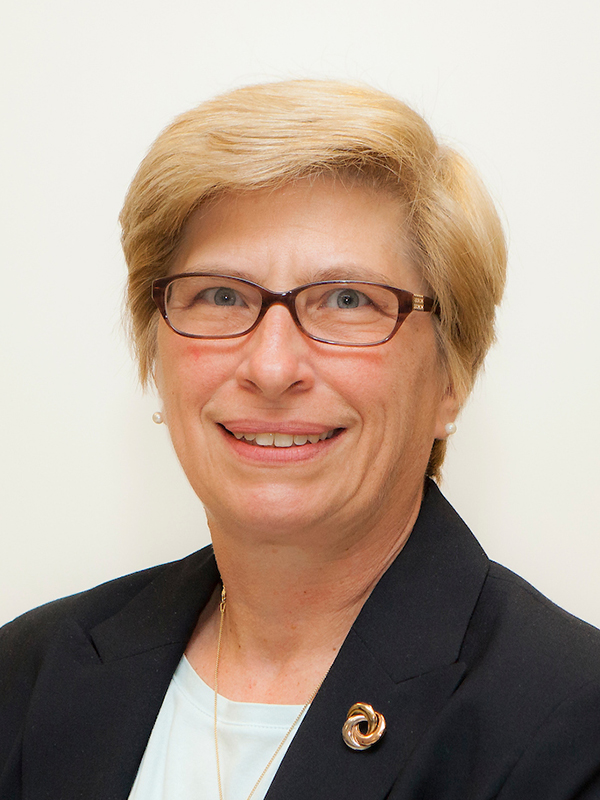Binghamton University’s public health program earns accreditation
Master of Public Health (MPH) program accredited by the Council on Education for Public Health until 2028

Binghamton University’s Master of Public Health (MPH) program is now fully accredited by the Council on Education for Public Health (CEPH) for five years, the maximum period allowed for newly accredited programs. The accreditation term extends until Dec. 31, 2028.
CEPH is an independent agency recognized by the U.S. Department of Education to accredit schools and programs of public health, ensuring they provide rigorous preparation to meet the profession’s needs. It helps schools and programs evaluate the quality of their instructional, research and service efforts, and it grants accreditation to schools and programs that meet CEPH’s published criteria.
“Accreditation is important to the MPH program, Binghamton University and the broader community as it ensures that our program meets accreditation standards, covers the essential knowledge and skills expected of public health professionals, and promotes career mobility and employment opportunities for our graduates,” said Yvonne Johnston, founding director of the Division of Public Health at Binghamton’s Decker College of Nursing and Health Sciences.
“This accomplishment is a source of great pride for our public health team, which has been preparing for accreditation of the Master of Public Health program since its inception,” she added.
The mission of Binghamton’s MPH program is to prepare a diverse public health workforce to lead advances in health equity for rural and vulnerable populations. The program is committed to academic excellence, advancement of a diverse and inclusive culture and engagement with the community. It emphasizes social justice, community service and advocacy.
The first cohort of MPH students was admitted in fall 2018, and to date, the program has graduated four cohorts of students, totaling 54 alumni. Program graduates now work in organizations that include public health departments, emergency management agencies, health and human service agencies, community health programs, nonprofit organizations, traditional healthcare settings and higher education.
“We offer a personal connection between faculty and students, an environment that fosters professional development and a broad didactic education for developing evidence-based solutions to real-world public health challenges,” Johnston said.
Along with the accreditation decision, CEPH accepted a revision to the MPH program offerings to include its accelerated (4+1) program, which allows students to earn a bachelor’s degree from most programs offered by Binghamton’s Harpur College of Arts and Sciences and an MPH degree in five years. With 4+1 programs, students save on tuition while improving their post-graduate employment opportunities.
Johnston recognized the University administrators who contributed to the development of the MPH program: Distinguished Service Professor and Director of Graduate Studies in English Susan Strehle, former dean of Binghamton’s Graduate School; University President Harvey Stenger; Professor Don Nieman, former provost and vice president for academic affairs; College of Community and Public Affairs Dean Laura Bronstein; and Decker College Dean Mario Ortiz.
“CEPH accreditation of the Master of Public Health program enhances Binghamton University’s national reputation, but more importantly, it provides a competent public health workforce that can promote the health, safety and well-being of communities,” Ortiz said.
Johnston also recognized the significant contributions of Decker College faculty and staff members Christine Podolak, former director of experiential education for the MPH program and now an adjunct faculty member; Jean Dorak, assistant dean of academic affairs; Nicolle Nestler Heary, coordinator of applied health and rehabilitative sciences; and Connor Deming, administrative assistant. The accreditation process also involved input from many stakeholders including faculty, staff, students, alumni, community advisory board members and fieldwork site personnel.
“This was a real team effort – everyone made valuable contributions, and all had a vital role in its success,” Johnston said.
The Need for Public Health
Johnston earned bachelor’s and master’s degrees in nursing from Decker College before completing master’s and doctoral degrees in public health-epidemiology from the University at Albany. In addition to her work at Decker College, she is a family nurse practitioner at the Broome County Health Department and shares her thoughts about public health.
The need for public health is as great now as it ever has been. New public health issues are shortening hard-earned lifespan gains, while older problems are re-emerging (though often in a slightly different form).
For decades, chronic conditions were the leading causes of death. However, COVID has become one of the leading causes of death, and the threat of emerging infectious diseases with pandemic potential feels ever-present. The significant losses of human potential associated with the opioid epidemic are substantial and personal. We have lost generations to this widespread scourge, not to mention the high cost it has placed on our health systems. Social isolation, loneliness, bullying and violence have brought our nation to the brink of a mental health crisis. And income inequality has left many individuals and families homeless and food insecure.
The inequitable access to health services and resources has led to devastating disparities in health outcomes. These injustices are also evident in the environmental impacts of industrialization and climate change, disproportionately affecting poorer nations and communities.
As a society, our health policies have rewarded a system of high-cost medical care while under-resourcing public health infrastructure and community-based organizations that focus on prevention. Simultaneously, the public health workforce is depleted through retirement and a lack of competitive wages.
We need public health professionals now who are prepared to address these and many other challenges in the decades to come.


